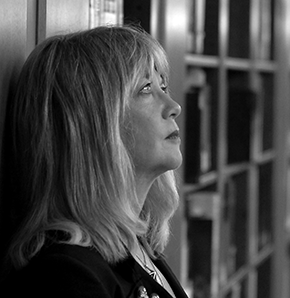Grief Dream
When he appears, he looks into my eyes
With the gaze of a child missing a perfected
Will. Then, like a child, he moves suddenly—
Insisting on his own space, summoning up that
Odd power that makes us seem real to ourselves.
His life failed him. Fame, which he had in hand,
Failed him. He believed it was because he chose me.
When I catch or remember his ripped-from-pure-terror
Characters onscreen and off (murderer, father, diplomat)—
I get that he was always a version of the liability of “us.”
He comes to me alone in dreams, spinning into a glimpse
Of such blue-eyed hate it might have been love—O
I was never sure of that living kid on the lit stage,
Floating now into the twentieth year of his death.
Copyright © 2021 by Carol Muske-Dukes. Originally published in Poem-a-Day on April 12, 2021, by the Academy of American Poets.
"This is a poem about grief. I've said before in my life that grief has no clock or calendar. It has no expiration date—we only learn how to live with it. Like memory, it is not locked in the past, rather an ongoing fluid phenomenon. I question ongoing grief, I return to the deceased, to meditate on them as if they still live—can still cause anger, passion, a sense of love and betrayal. ‘White washing’ the tomb is a false comfort; we honor the dead by remembering them as they were—and are. That is what I hope this poem manages to express."
—Carol Muske-Dukes

